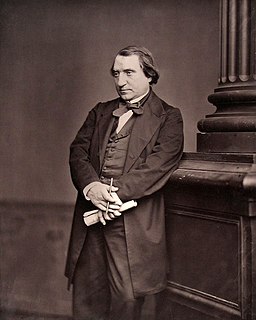A Quote by Charles Sanders Peirce
A hypothesis is something which looks as if it might be true and were true, and which is capable of verification or refutation by comparison with facts.
Quote Topics
Related Quotes
Many, and I think the determining, constitutive facts remain outside the reach of the operational concept. And by virtue of this limitation this methodological injunction against transitive concepts which might show the facts in their true light and call them by their true name the descriptive analysis of the facts blocks the apprehension of facts and becomes an element of the ideology that sustains the facts. Proclaiming the existing social reality as its own norm, this sociology fortifies in the individuals the "faithless faith" in the reality whose victims they are.
Is evolution a theory, a system, or a hypothesis? It is much more it is a general postulate to which all theories, all hypotheses, all systems must henceforward bow and which they must satisfy in order to be thinkable and true. Evolution is a light which illuminates all facts, a trajectory which all lines of thought must follow this is what evolution is.
Mr. Darwin's hypothesis is not, so far as I am aware, inconsistent with any known biological fact; on the contrary, if admitted, the facts of Development, of Comparative Anatomy, of Geographical Distribution, and of Palaeontology, become connected together, and exhibit a meaning such as they never possessed before; and I, for one, am fully convinced that if not precisely true, that hypothesis is as near an approximation to the truth as, for example, the Copernican hypothesis was to the true theory of the planetary motions.
A fact is a proposition of which the verification by an appeal to the primary sources of our knowledge or to experience is directand simple. A theory, on the other hand, if true, has all the characteristics of a fact except that its verification is possible only by indirect, remote, and difficult means.
A religion, that is, a true religion, must consist of ideas and facts both; not of ideas alone without facts, for then it would be mere Philosophy; - nor of facts alone without ideas, of which those facts are symbols, or out of which they arise, or upon which they are grounded: for then it would be mere History.
The popularity of the paranormal, oddly enough, might even be grounds for encouragement. I think that the appetite for mystery, the enthusiasm for that which we do not understand, is healthy and to be fostered. It is the same appetite which drives the best of true science, and it is an appetite which true science is best qualified to satisfy.
[Dr. Constain James] refuted so well the aberrations of Darwinism.... [A system] which is repugnant at once to history, to the tradition of all people, to exact science, to observed facts, and even to reason itself, would seem to need no refutation. But the corruption of this age, the machinations of the perverse, the danger of the simple, demand that such fancies, altogether absurd though they are, should - since they borrow the mask of science - be refuted by true science.
I have great hope and faith, but it's a humanistic faith based in facts; you have to believe that facts exist. We can all arrive at the same facts if we engage in the process of experimentation, observation, and verification, which can solve more of the world's major problems than a debate over whether God does or doesn't exist.








































